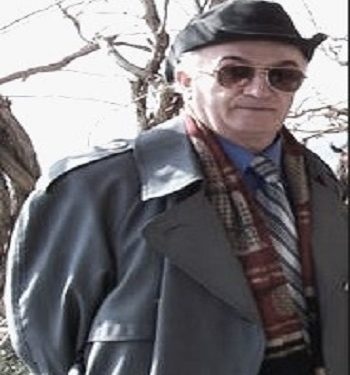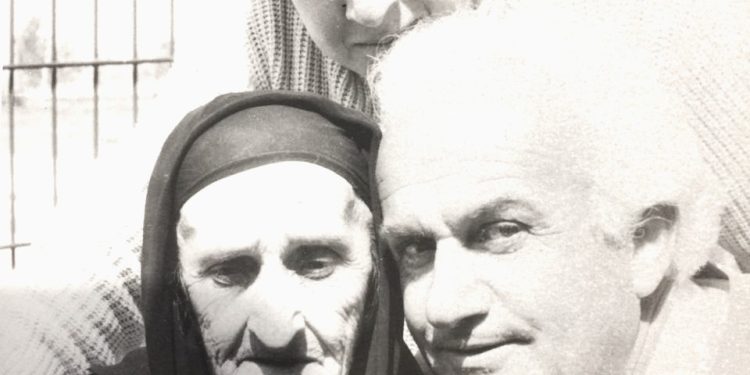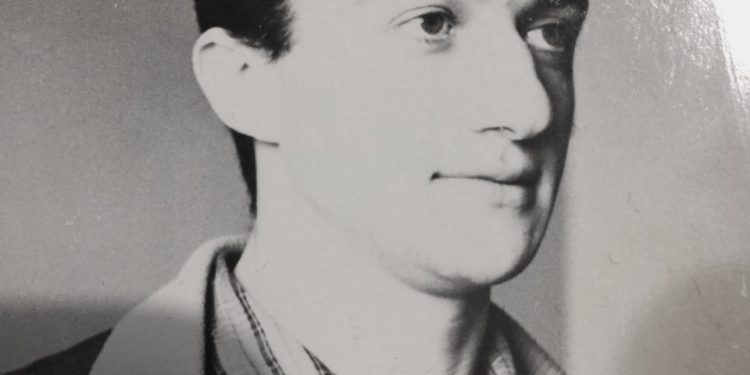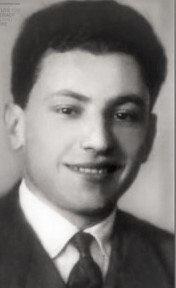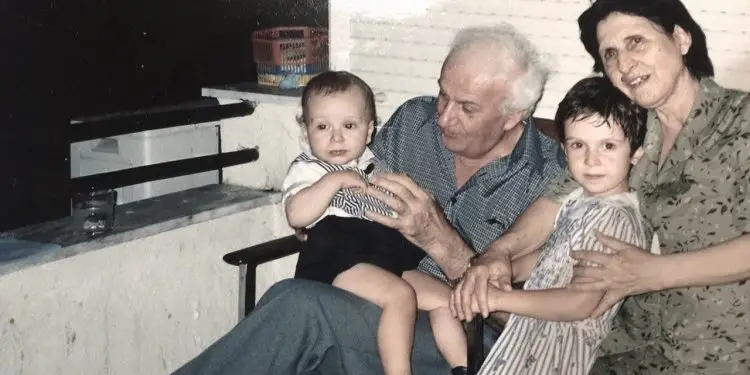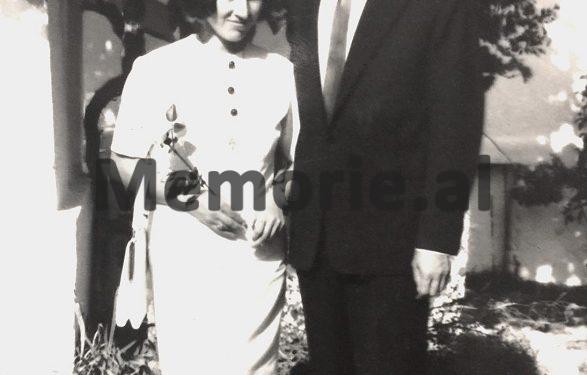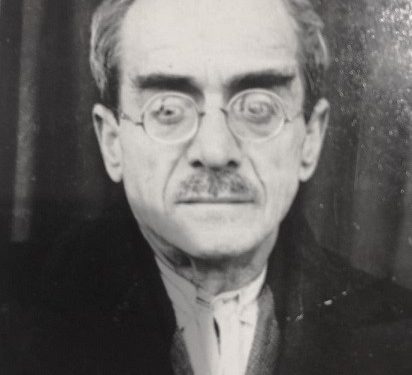By Sokrat Shyti
Part Twenty-Four
Memorie.al / The writer Sokrat Shyti is the “great unknown” who, for several years, has revealed the peak of the iceberg of his literary creativity. I say this based on the limited number of his published books in recent years, primarily the voluminous novel “The Phantom Night” (Tirana 2014). The novels: “BEYOND THE MYSTERY,” “BETWEEN TEMPTATION AND WHIRLPOOL,” “THE DIGGING OF NIGHTMARES,” “THE SHADOW OF SHAME AND DEATH,” “THE CHIEF COLONEL,” “THE DAMPENED HOPES,” “THE CONFUSIONS OF DESTINY” I, II, “SURVIVAL IN THE COWSHED,” as well as other works, all novel manuscripts ranging from 350 to 550 pages, are waiting to be published. The dreams and initial fervor of the young novelist, returning from studies abroad full of energy and love for art and literature, were cut short early by the brutal edge of the communist dictatorship.
Who is Sokrat Shyti?
After returning from studies at the State University of Moscow, shortly after the interruption of Albanian-Soviet relations in 1960, Sokrat Shyti worked at Radio “Diapazon” (which at that time was located on Kavaja Street), in an editorial team with his journalist friends – Vangjel Lezho and Fadil Kokomani – both of whom were later arrested and subsequently executed by the communist regime. In addition to the radio, 21-year-old Sokrat, if we can imagine him, had passionate literary interests at that time. He wrote his first novel “Madam Doctor” and was on the brink of publication, but… alas! Right after the arrest of his friends, as if to fill the cup, one of his brothers, a painter, escaped abroad.
Sokrat was arrested in September 1963, and in November of that year, he was interned along with his family (his mother and younger sister) in a location between Ardenica and Kolonje in Lushnje. For 27 years in a row, the family lived in a cattle shed made of reeds, without windows, while Sokrat was subjected to forced labor. During those 27 years, he was legally obliged to report three times a day to the local authority. He had no right to move from the place of internment and was deprived of any kind of documentation, etc. In these conditions, amidst a cattle shed, he gave birth to and raised children. It is precisely based on this event, or more accurately, a very long history of persecution, that he was inspired to write the book “Survival in the Cowshed”!
Agron Tufa
Continues from the previous issue
EXCERPT FROM THE BOOK “SURVIVAL IN THE COWSHED”
This thought caused a piercing pain throughout my body. Because it seemed terribly cynical to remove from the path of creativity a writer, under the pressure of hatred, fearing that the illumination of his literary work might cast shadows on the untouchable boundary of authority, which should never be touched or violated, not even speculated upon by anyone! (The fact that my humorous story, in two parts, “Aunt Maga,” was published in the literary magazine “Nëntori,” but only the first part appeared, without the necessary editorial note (continues), while the second part never saw the light of day, (even though it was edited by the general secretary of the Writers’ Union), at a time when I was working as a journalist in Radio Broadcasting, marked the first attack against me and my creativity.
The alarm bell rang: “You are undesirable for the elite of powerful writers who receive government awards and recognitions, who are mentioned hour by hour as apostles, whose works are read in fragments on the radio by the most distinguished actors, are dissected in educational programs with details in schools by literature teachers, participate in solemn state meetings, are invited to party and government dinners, and are elected to important leading forums at the Republic level!”
The second fact; although not directly personal, had a generalizing significance because the open war in the pages of official and literary press against the generation of elderly veteran writers (Musaraj, Spasse, Shuteriqi, Gjata, Çaçi, and others) by the elite writers primarily demonstrated that this onslaught was fueled by the support and backing of the “legendary Leader,” the “Zeus” of the Albanian people and the Party of Labor, Enver Hoxha, because the powers in his iron hand would only have the grandeur of magnificence through the astounding flourishing of stunning literary figures that would mythologize him like a God!
Veteran writers should engage with the memories of the War, they should express their impressions through books, according to their imagination, surely always highlighting the role of the Communist Party. “Liberators,” “Belxhiku that sang in the local dialect,” “The Epic of the National Front,” “The Swamp,” “So Myzeqe,” and some other books do not reflect what “Zeus” needs. Because who knows better than him the mysteries of the War, under what circumstances the Albanian Communist Party was “created”? No one.
Therefore, the profusions of the veteran writers are mostly needed by former partisans who wish to read. Even they are not completely satisfied since they want events according to their perspective. As for the feelings of the legendary Commander, who does not consider these books at all, not even a word. The history of the War and the continuity of building socialism will only be written from his perspective by the staff of historians who are inclined to concoct a variety of convincing tricks.
In the new conditions of the International Communist Movement, when the giants of the Socialist Camp broke away, Enver Hoxha needed, more than anything, explosive bursts of inspiration that would place his mythical figure on Olympus, where “Zeus” resides, so that the proletarians of the world see him and know from where the light beams of Marxism-Leninism are spread! This important mission is fulfilled only by elite writers, who are ready to put their overwhelming inspiration in the service of the unparalleled grandeur of the greatest visionary of the XX century!
The poems filled with hymn-like pathos, the literary figures with satanic essence, “the survival of the Albanian nation depends on the existence of the Communist Party,” the comparison of the founder of the Party’s signature with lightning in a stormy sky, the bombastic line “I belong to Communism” (which was memorized by all students in schools within a few days), the famous novel that depicts Enver Hoxha; Supernatural Leaders with titanic strength (according to the minutes of the Politburo), which were translated into several languages, along with the works of the Disciples, constituted the most valued service for “Zeus,” for which the authors deserved the highest accolades, establishing themselves as a literary elite determining the fate of every writer and poet: the flatterers and their admirers climbed the career ladder. Meanwhile, those who were in the focus of hatred sank into the abyss of annihilation!…
A detailed examination of these two facts convinced me that even if my brother the painter had not escaped, which resulted in the horrific internment in the cowshed, surely another ideological trick would have been devised, easily manipulated in the editorial offices of the Radio. And without any doubt, they would have sent me away and exiled me somewhere, with the motive:
“You were a friend and co-editor in the Youth program with the enemy of the people, Vangjel Lezho; you worked in the same office, manifesting in various artistic programs and writings, dual thoughts, with malicious and antagonistic intentions that were clearly defined, and to avoid detection, you used humor as a disguise!” They could even easily concoct a farcical trial, whereas unequivocal evidence they could bring the long story in two parts, “Aunt Maga,” as well as the unpublished manuscript of the humorous novel, “Madam Doctor,” in which naturally there are pieces of satire that the zealous, vile investigators of the Proletarian Dictatorship interpret through a class prism.
This compelling reasoning was reinforced by the completely humiliating nature of the punishment, being placed in the cowshed. The assistant to the First Secretary of the Party Committee left me stunned when he said that Comrade Qemal directly asked the chairman of the Internal Department: “Who first thought of the cowshed in Ardenica as an internment shelter? Did this strange idea come from over there, or did it strike someone’s mind here?! Because I don’t believe that such details were written in the decision of the Government Commission.”
Then it must have been pushed by someone who hates journalists and, taking advantage of the unfortunate circumstance that could happen to anyone, did not hesitate to whisper in the ear of the decision-maker, asking the executor of the decision for the most spiteful favor: keep the cub isolated near an animal, so that its mind would numb and its voice would stifle! Meanwhile, you, the local leaders of the Proletarian Dictatorship, have not at all put water on the fire to investigate and discover why this strange measure for this family, which until yesterday was among the most respected in the city!
“Treated as a criminal family, with your negligence you have caused a profoundly painful drama, comrade chairman! This is unforgivable, especially for you, who write books with memories and should not lack sensitivity. I am sure at this moment, you should imagine how much you have tortured the mother of this family, not only by exiling her to the cowshed like an animal but also by not allowing her older son, the actor from the People’s Theater, to see and embrace her! You have done the same thing with the married older daughter here, who works as a central operator at the Post Office. These emotional tortures surpass the physical tortures many times over.
If it hadn’t happened that a character in the amateur theater troupe was leaving and there was an urgent need to replace the role with another amateur, which reached me as an unresolved matter of honor, in case the interned journalist, Sokrat Shyti, could be accepted since no one was willing to bear this burden, and if my perspective was to be clouded by the dense darkness of the class struggle, then the cruel treatment of this family could have continued indefinitely!
Not only we, who are the main leaders of this district, but any simple person shudders when hearing such events, where the elder brother and sister are terrified to meet their mother, brother, and younger sister, who, although completely innocent, are labeled by the state as ‘declassified,’ according to our laws, and consequently lose all their rights of citizenship!
These words were deeply etched in my consciousness, remaining in my memory as the most shocking affirmation, for the fact that they came from the mouth of the main leader of the district, which constitutes the rarest and most extraordinary phenomenon in the horrendously harsh climate of class struggle, which was loudly and boastfully propagated by most high-ranking party and state officials as the backbone of the Proletarian Dictatorship, the epicenter of an unceasing inquisition’s ferocity down to the seventh generation, and served as the basic explanation for why communism has such infinite longevity!…
My presence in the amateur theater group revitalized my exhausted spiritual state, melted the frozen youthful energy, and reinstated the dignity that had been trampled down during these three years. Friends constantly encouraged me to forget the bitter experiences or to deem them as terrifically horrific dreams, which would gradually fade from memory, especially since this matter had been taken in hand by the First Secretary of the Party Committee, the only one in the circle with full power, against whom no one dared to oppose his orders.
The turning point began with the departure of my mother and younger sister to the house of my older sister. From this moment on, our way of life underwent a fundamental change: we slept like humans, in a bed, within a suitable dwelling that had a ceiling and floor made of wood, with a bathroom inside, and ample space, even in better conditions compared to Tirana, where we had only a small room.
My sister’s husband did not know how to express the inner joy that came from being able to showcase his hospitality, not simply to show his true human character to the outside opinion, but also to satisfy his repressed spirit, imprisoned in the hellish cell of the slave-like norms of the Party’s statute, which didn’t allow him to take a step where he wanted. He was especially troubled inside by the echoes of his conscience (like rheumatism in the bones, which shows itself from time to time in various forms), causing pain and despair, as the routes and possibilities of connection were monitored by spies, and the smallest sign of an attempt to escape quarantine would bring family destruction.
Therefore, from time to time, they warned him to be very careful, not to worry or despair over the strained and worsened relationships with the mother-in-law, brother-in-law, and sister-in-law who were interned, as the temptation of this thought carried with it the risk of disintegration in the family hearth: first and foremost, they would strike with the lightning of exclusion from the Party, dismissal from work along with his wife, and it would be no surprise if the storm of the district commission’s decision included expulsion from the city of Lushnje, without mentioning the fate of their grown sons! In the conditions of atrocious censorship, he was forced to comply and walk the path that was ordered, like a horse with a bit in its mouth, directed wherever it was pulled.
Every time he went to and returned from work, he felt the piercing gaze of curious, stealthy observations coming from all directions. Some silently prayed and waited impatiently for him to lose his mind and stray from the rigid rules of the statute, sending someone to meet with the former journalist in the fields when he went to deliver fuel to the tractor drivers, hoping that in these open spaces, the observations would be interrupted, as the spies had specific paths of observation. (The anxious expectation was directly linked to the workplace and expulsion from the Party, the two most essential neural points that brought them material benefits). Something almost similar was observed during official hours.
He knew exactly whose eyes stealthily followed his movements, and which ears eavesdropped on conversations in the basic Party organization, in meetings of professional unions, in educational formats, and in meetings of the Democratic Front. Therefore, he remained quite cautious, always constricted within the norms of communist ethics, to avoid arousing even the slightest suspicion in the spider-like minds of the spies.
When the instructors called him to the Party Committee to provide the new guidelines from the district Bureau, or when he was pulled aside by the organizational secretary for some orders, a gnawing larva of dread crawled around in his brain, as he feared that someone among the spies had fabricated some vile slander, under the pressure and support of someone influential, who had set their sights on the position of the chief accountant at the State Bank, intending to gift it to one of their people.
This constant nightmare accompanied him even when he went to the Executive Committee, but especially in the plenums of the district (regardless of the topics), as it was inevitable that the strengthening of revolutionary vigilance and the intensification of class struggle within the people and families would be emphasized during the heated minutes of discussions, when participants kept their ears perked up, fearing that at any moment a smoke bomb or a noisy firecracker could unexpectedly explode, after which specific names would be mentioned.
These terrifying and haunting moments left him breathless for a few seconds, until the meeting leader turned on the green light, signaling the end of the proceedings. Therefore, the faint-hearted, who faced the frequent throbbing with much effort during the waiting temptations, carried calming and sedative medicines with them to swallow before transitioning into arrhythmia and slowing the rumblings of their chests. During breaks between sessions, they would go to the buffet to drink coffee, to gather their thoughts and calm their hearts.
They looked at each other with the same anxious gaze: “We got through this time too!” Because now they knew that the shadows of revolutionary vigilance and class struggle took on the shapes of phantoms that could suddenly terrify them. Thus, the secretaries of the basic organizations awaited with trembling hearts and troubled minds to see what would be said in the report, how many blows they would receive this time, as through them, they understood whom they had stepped on the callus, and which of the pencil-pushing instructors who had prepared the report did not fulfill a single request or order given.
However, my sister’s husband, unlike most (being precise in fulfilling his state duties and a paragon of honesty), was not afraid of being touched or reprimanded for shortcomings in terms of proletarian discipline and morality. Nevertheless, he was internally troubled at the thought that someone during the free discussions might suddenly mention the stain of the label of the escaped brother-in-law and call for a stance to be taken from the leading organs of the Party, supporting his “principled” opinion on the intensification of the class struggle according to the enlightening teachings of the Party and comrade Enver.
(In fact, his anxiety had a concrete real cause, because at a meeting with the secretaries of the basic organizations, one of them directed a question filled with venom and “spicy pepper” toward the presidium of the assembly, causing everyone to hold their breath to hear the answer).
– “Are there cases when leaders close one eye and ear before taking strict measures, when the softening of the class struggle is observed?” – He asked.
– “First of all, you must know and fix it once and for all in your mind that not everything is presented for review and resolution at the meetings of the basic organization. Because there are cases with special events that do not belong to the basic organization of the Party, so the matter is neither raised nor questioned,” – replied the meeting leader wisely, forcing the braggart to shrink back in his seat, like a wet chicken.
(However, many of those present understood which base organization secretary aimed to strike with his question, a decoy placed intentionally by someone. What he missed was that the leader, with a sharp intuition, raised the “concrete” prelude and almost bluntly told him: “Your mind is like a grain, unable to grasp the acute problems of our state, so take care of yourself!”
All these internal issues, in the form of traps and behind-the-scenes maneuvers, were unraveled by my sister’s husband one evening, while we were sitting alone in the waiting corner, as he felt it necessary to justify himself before me, for being forced to remain so long in his shell of restraint as a condition for survival. Therefore, I listened to him in silence until the end without interrupting, allowing him to vent all the burdens of these years and explain why this painful “cooling” occurred for both parties!
– “While you two were opening up to each other, mother cried for you and expressed complaints about us for not making any effort to help you (and she was completely right because besides the suffering, her soul ached; it seemed like the two adults in the parental family had turned their backs on her and she was left only with you, in the most miserable condition, without support or income!), my wife and I here struggled in our silence, as we could not reveal any thought, since we both knew exactly that all paths were blocked, and it seemed futile to beat water in a mortar. Although you are a journalist and a writer, with imagination, you still cannot fathom how I felt when the assistant to the First Secretary informed me about the significant turn, after which a prosperity for my mother-in-law’s family would begin!
First of all, the burdens and constraints were lifted from me; I returned to myself, shedding the mask that prevented me from behaving as I should, to honor and respect my mother-in-law, brother-in-law, and sister-in-law. This message dispelled the shadowy threat of punishment that followed me everywhere I went: at work, on the street, in every party meeting./Memorie.al
Copyright©“Memorie.al”
All rights to this material are exclusively and irrevocably owned by “Memorie.al”, in accordance with Law No. 35/2016 “On Author’s Rights and Related Rights”. It is strictly prohibited to copy, publish, distribute, or transfer this material without the authorization of “Memorie.al”; otherwise, any violator will be held liable under Article 179 of Law 35/2016.




